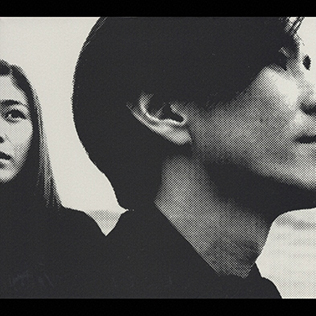
Tetsuya Komuro is a Japanese musician, songwriter and record producer. He is recognized as the most successful producer in Japanese music history and has introduced contemporary electronic dance music to the Japanese mainstream. He was also a former owner of the disco Velfarre located in Roppongi, Tokyo.

Concentration 20 is the third studio album by Japanese singer Namie Amuro. It was released July 24, 1997, by Avex Trax. The album's genre is a fusion of styles including pop, dance and rock. Unlike Amuro's previous effort, Sweet 19 Blues, which primarily had lyrics written by Tetsuya Komuro, Concentration 20's lyrics were mostly written by Marc Panther. Komuro did, however, compose and arrange most of the album's songs and wrote the lyrics to three of them. It was Namie's second solo album since splitting up with Super Monkey's.

Sweet 19 Blues is the second studio album by Japanese recording artist Namie Amuro. The album was released in four different slipcases, with the first three cases limited to 1,000,000 copies each—were put on sale on July 20, 1996, throughout Japan, and were distributed two days later to the rest of Asia by Avex Trax. The album was primarily handled by Japanese producer Tetsuya Komuro, with the assistance of Cozy Kubo, Akio Togashi, Takahiro Maeda, M.C.A.T. and Randy Waldman. Sweet 19 Blues is considered her debut solo album since it was released after her spilt with Super Monkey's.

"How to Be a Girl" is the tenth single by Japanese recording artist Namie Amuro. It was released on May 21, 1997, through Avex Trax. It was used as the Bristol-Myers Sea Breeze commercial song, which was used for four commercials. The style of the song is similar to that of her single "a walk in the park", which has an evident electronic sound, in the vein of her producer Tetsuya Komuro's group globe. Lyrics were even written by MARC, who is another member of the group. This was the final single from her third studio album Concentration 20 (1997), which was released two months later. The single is a follow-up to "CAN YOU CELEBRATE?", which became her biggest hit.
Tomomi Kahara born Tomomi Shimogawara on August 17, 1974 in Tokyo), is a Japanese pop singer. She is famous for working with Tetsuya Komuro who gave her much success in the 1990s, which led to her deep dip in popularity after 1999, the year in which she released her first non-TK produced album, One Fine Day. Tomomi Kahara and Tetsuya Komuro dated for a few years, but they suffered from personal problems which led to their breakup. After a period of sickness, Kahara's talent agency terminated her contract on June 29, 2007.

Can You Celebrate? is the ninth single by Japanese recording artist Namie Amuro. Serving as the lead single for her third studio album Concentration 20, it was released on February 19, 1997. Its lyrics and composition was handled solely by Tetsuya Komuro. Musically,

"Sweet 19 Blues" is the seventh single by Japanese recording artist Namie Amuro. It was composed, written and arranged by Tetsuya Komuro for her debut album of the same name. A month after its release, her label Avex Trax released the song as a recut single due to popular demand. The song's subject and the album was about the melancholic passing of another sweet year of youth, which is a particularly Japanese obsession.

"You're My Sunshine" is the sixth single by Japanese singer Namie Amuro. It was released on June 5, 1996, by Avex Trax and was produced by Tetsuya Komuro. The song was the image song for the Bristol-Myers Squibb "Sea Breeze '96" commercial in which she appeared. The version used in the initial commercial had a different tempo and tune from the CD package version. The following year, 1997, she was used for the second consecutive year in a "Sea Breeze" commercial, this time using her hit song "How to Be a Girl".

"Body Feels Exit" is Namie Amuro's debut solo single on the Avex Trax label. Released nine days after her only album with former label, Toshiba-EMI, "Body Feels Exit" debuted in the top three on the Oricon chart and would be her first of 24 consecutive top-ten solo singles.

"I Have Never Seen" is the 12th single by Japanese singer Namie Amuro, released by Avex Trax on December 23, 1998. The song was written and composed solely by Tetsuya Komuro. It was the first single released after Amuro's return from her yearlong maternity leave, and was released approximately one week before her official comeback at the 49th NHK Kohaku Uta Gassen. "I Have Never Seen" was a commercial success, becoming her ninth number one single, and was her last until 2008's "60s 70s 80s". The single was certified double platinum by the RIAJ for 800,000 copies shipped to stores.

Never End is the 17th single by Japanese recording artist Namie Amuro, released on July 12, 2000, as the lead single from her 5th studio album Break the Rules. The track was made specifically for the G8 Summit that took place in Amuro's home prefecture Okinawa during July of that year. The single reached #2 on the Oricon Singles Chart and charted for 14 weeks, becoming Amuro's 16th consecutive top 10 solo single. "Never End" was Amuro's last CD single to premiere with over 100,000 copies in sales until "60s 70s 80s" in 2008.

Globe is the debut studio album by Japanese band Globe. Released by Avex Trax on March 31, 1996, the album features the singles "Feel Like Dance", "Joy to the Love", "Sweet Pain", "Departures, and "Freedom". "Departures" sold over two million copies, becoming the second highest-selling single in Japan.

"Oh Darling" is a single by Japanese recording artist Alisa Mizuki, released under the unit name Convertible, which is composed of Mizuki and Japanese model Kayato. It was released on July 8, 1998 as the third single from Mizuki's fifth studio album Innocence. The title track was written by Tetsuya Komuro and Marc Panther and composed and produced by Komuro. "Oh Darling" is Mizuki's fifth A-side to be produced by Komuro, the first since "Promise to Promise" (1996). The song served as theme song for the Fuji TV Getsuku drama Boy Hunt, starring Mizuki herself.

"Feel Like Dance" is the debut single by Japanese band Globe. Written by Tetsuya Komuro, the single was released on August 9, 1995, by Avex Globe.

"Sailing" is a song by Japanese pop group AAA. It is their 31st single and is included in the group's seventh studio album 777: Triple Seven. The song was written by Mitsuhiro Hidaka and Tetsuya Komuro. The single was released in Japan on February 22, 2012, under Avex Trax in four editions: a CD-only edition, a CD and DVD A edition, a CD and DVD B edition, and a Mu-Mo edition. "Sailing" debuted at number four on the weekly Oricon singles chart. The single charted for six weeks and went on to sell over 45,600 copies in Japan.

"Love Love Love" is a song recorded by Japanese band Dreams Come True for their eighth studio album, Love Unlimited ∞. It was released as the album's lead single by Epic/Sony Records on July 24, 1995. It is the theme song to the TBS drama series Aishiteiru to Itte Kure. The single's B-side, "Arashi ga Kuru", was also featured throughout the series' twelve episodes. With over two million copies sold, "Love Love Love" is the tenth best-selling Japanese single of all time and remains the band's most successful single.

"Senryū no Shizuku" is a song recorded by Japanese singer Shizuka Kudo. It was released as a single through Pony Canyon on May 9, 1990. It marks the debut of Kudo as a songwriter. The song was featured on commercials for Taiyo Yuden That's cassette tapes. Similarly to her previous single, "Kuchibiru Kara Biyaku", a limited number of 7-inch vinyls of the single were produced for promotional use. "Senryū no Shizuku" has never appeared on an original album, but was included in the compilation album Unlimited (1990).

"Gekijō" is a song recorded by Japanese singer Shizuka Kudo, from her twelfth studio album, Dress. It was released by Pony Canyon as the album's lead single on November 7, 1996. It is the theme song of the CX television series Yuzurenai Yoru, starring Kudo herself. "Gekijō" was written by Miyuki Nakajima specifically for the drama; after reading the script, Kudo immediately thought of Nakajima for the soundtrack and sought to have her write the theme song. Nakajima's lyrics invoke the series' title, which loosely translates to "Unyielding Night".
Tetsuya Komuro Archives refers to two separate box set releases featuring songs from various artists that were produced by the retired Japanese musician Komuro Tetsuya. They were released on June 27, 2018, by the Japanese record label Avex Trax. The box sets were released as Tetsuya Komuro Archives "T" and Tetsuya Komuro Archives "K", with each box set containing fifty songs divided into four separate discs.

"Itoshisa to Setsunasa to Kokoro Zuyosa to" is the fourth single by Japanese singer Ryōko Shinohara, released on July 21, 1994, by Epic Records/Sony Music Entertainment Japan under the Tokyo Performance Doll label Cha-Dance. Written and produced by Tetsuya Komuro, the song was used in the Japanese release of the 1994 anime film Street Fighter II: The Animated Movie during the scene where Ryu and Ken Masters team up to fight Vega/M. Bison. The B-side is "Good Luck", which was also featured in the film as the ending theme.


















